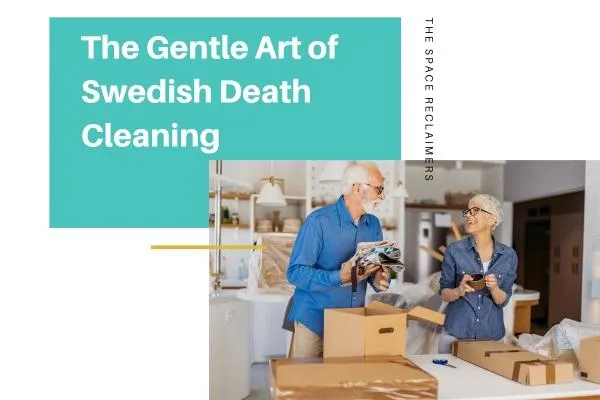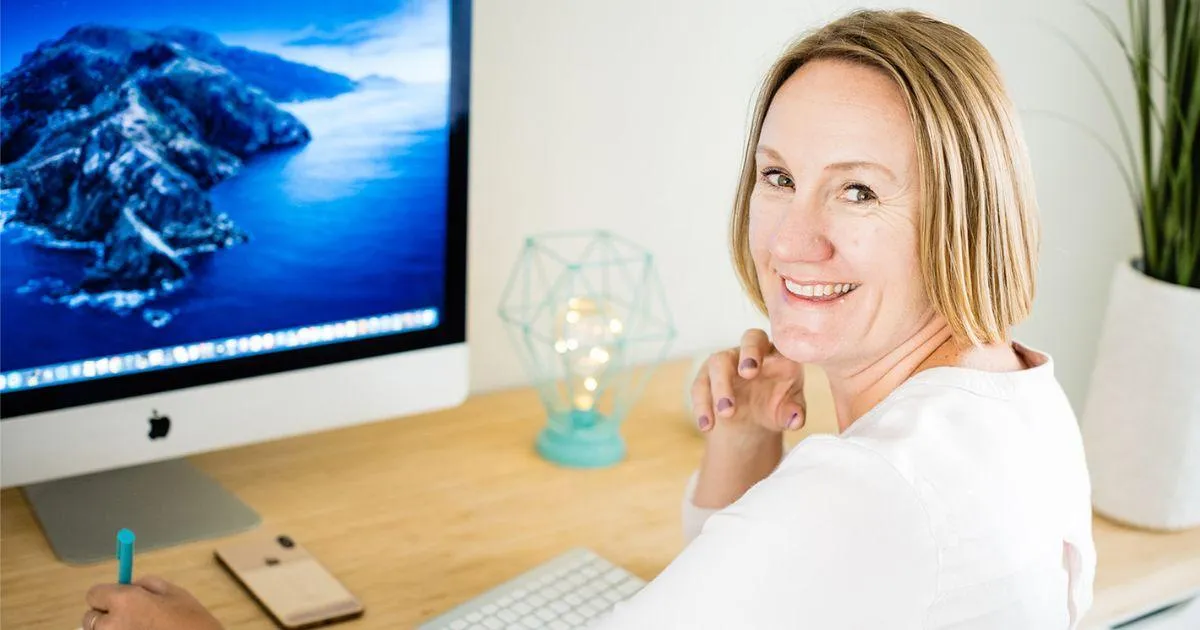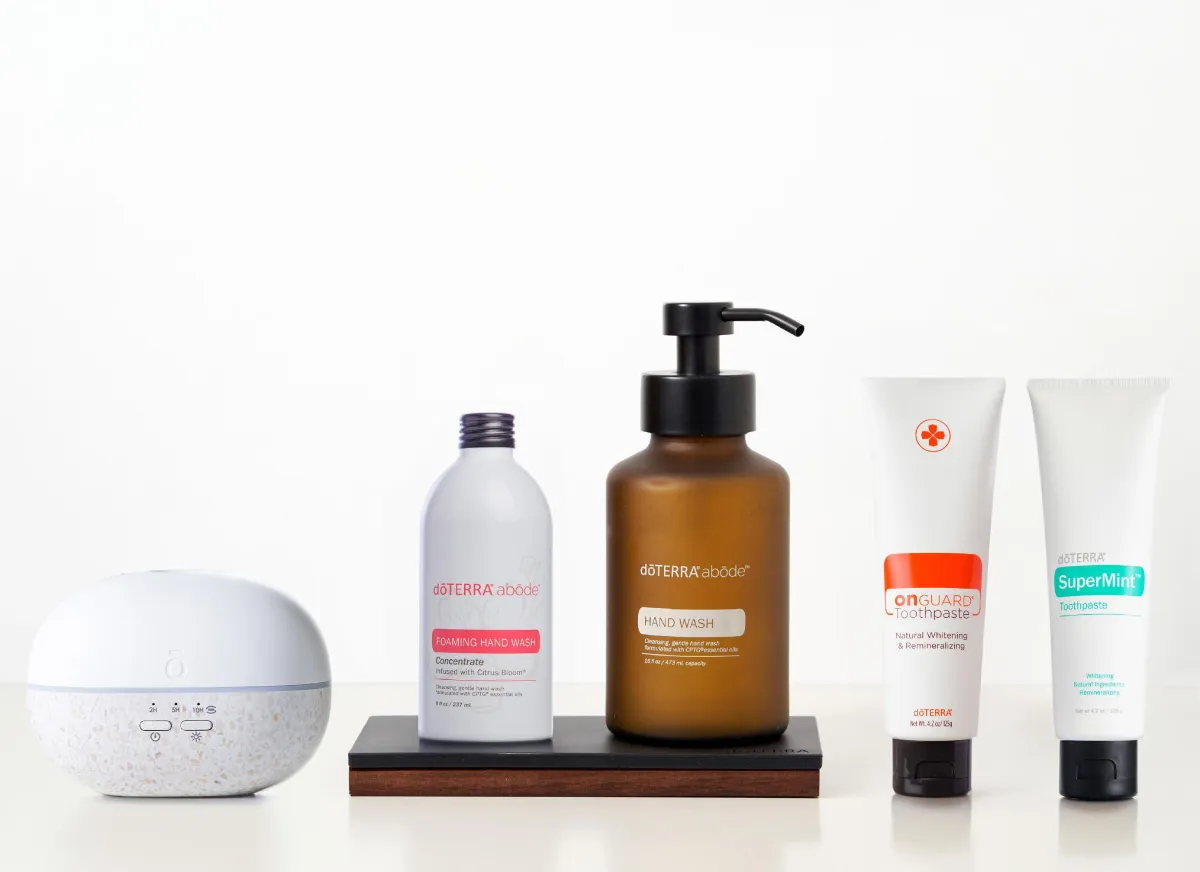The Space Reclaimers

The Gentle Art of Swedish Death Cleaning
“Putting our house in order, if you can do it, is one of the most comforting activities, and the benefits of it are incalculable.” - Leonard Cohen, The New Yorker
I'm calling out all our 50 plus group out there, or our baby boomers!
I hosted a presentation a while ago about our aging parents and they have been in their homes for 40+ years. Where they have so much stuff in their home and you as the adult kid are now thinking "what are we going to do with all this stuff when they pass away?".
It's a really tough subject because nobody likes to talk about it!
It could eventually be you with your kids, deciding what happens with your home that has "stuff" in it... so it sparked me to write this blog.
Not enough of us are talking about what happens to all that stuff that get's left behind and how we can prevent the added stress of dealing with it. There's a great book that I've read, The Gentle Art of Swedish Death Cleaning, by Margaret Gunderson about this topic.
In the book she really gets to the point, and she's like, you know what, there's one thing we're all guaranteed on this earth, is to leave it at some stage, so start the conversation now around what happens with our "stuff".
So let's do it...let's start the conversation now, before it gets to that point where you're left dealing with a house full of stuff.
It's not a fun process having to go through your parents stuff after they pass and you don't know what to do with it all.
A strong emotion that can come up is guilt. When you start sorting through their items you say to yourself "I think this is something mom and dad really loved so I should I keep it". Or you feel really bad giving it away or donating it, or selling it, or whatever you decide to do with it, when really your parents maybe weren't that attached to it.
They just never got motivated to start releasing their stuff and you never had that conversation with them..
She talks about a couple of tips on how to handle this and I added my own view on that as well.
I'm the youngest of six kids, I'm 52, my father has passed away, he grew up in Holland, came over to New Zealand at the end of World War II, so his perception of life was "you've got food on the table, you've got clothes on your back, you're all good, that's all you need".
He didn't gravitate towards keeping stuff, or find that he needed to keep or collect stuff or was excited about the fact that he had access to more things.
Now on the flip side, what can happen is that when someone grows up during world events it can affect the way we view "things".
There was the depression, World War II, the stock market crash where it may have had some families to count every penny and have the school of thought that everything has a use, if it's broken, you need to keep it because you can repair it.
So your parents' mentality maybe was, we need to keep everything because I spent my hard-earned money on this, or it's very wasteful and I might need it sometime and everything has a purpose.
So what you need to do now is really start that conversation, and to be mindful of having a tough conversation. Being tactful, because if your parents have grown up in a home that suffered scarcity it's really hard for them to change because it's been ingrained for them for so long.
Now, be warned if you don't start this conversation, you need to be prepared to be left to deal with all of this stuff, so you're kind of making that conscious decision - okay, if I don't start this conversation now then I'm happy to deal with all this stuff,
So let's start the conversation - here are a couple of gentle and tactful ways to do that:
"you have many nice things, have you thought about what you want to do with it all later on", and another one is, "do you enjoy having all this stuff?" you could be really surprised with what their answer is!
You also need to be prepared that they may change the subject, and be like, yeah, I don't want to talk about this right now. Be persistent, keep going with the gentle, tactful ways of bringing it up.
The Gentle Art of Swedish Death Cleaning is perfect for baby boomers that are downsizing, perhaps they are recently widowed, need to move to a nursing home, to start the planning in advance will help lessen the chances of unhappy moments for those left behind. It's really them thinking of their family and that's the motivation, that can be the catalyst and they just make that decision, because they thnk "you know what, I don't want to leave my family with that burden".
Here's Margaret's suggestion to help get them started (or you):
The throwaway box -
gather all these personal items in a box, and label it throwaway, so when you're going through your things, or your parents things, and they have absolutely no value to anyone else, but have really massive value to you, place them in the throwaway box.
This can also be a really meaningful project that you could do with your own kids or parents, spend some time with those memories, pack them away, and as you find more items, keep adding to it.
Then what happens is once you're gone or your parents, that box can be easily discarded by family members, so you're going to save them time and emotional stress, because it has already been dealt with, how cool is that!
It really helps if you are struggling, or if your parents are struggling with those memories, because sometimes, those letters are the only connection they had, and that can mean a lot to them, and this is a way to deal with it, and it also broaches that you're not going to force them to get rid of everything.
This then builds trust so when you say to them, let's go through your stuff and let's create that throwaway box, they want to do it because they know your not going to make them get rid of everything and it's a really good lead-in to doing the bigger items.
Here's some other ideas that I've come up with, and from my clients.
Idea 1:
Family Auction - I had a client, who held a family auction where she had lots of paintings, the knickknacks, the sterling silver cutlery, the grandfather clock, things like that, so she was newly widowed, and she downsizing. She put aside the things she wanted to keep, and auctioned off the items that she didn't want to take, but still meant a lot to her. She was hoping that her family would want to purchase these items in the auction, but if not then she knew they had to go. She put a starting price on them, and so they went around and bid for the things they wanted. This is perfect as the family members got the items that they wanted, what was left behind, she knew that her family didn't want it, and she could donate. The money she made from the auction she donated such a ingenious idea!
Idea 2:
Another way to do it is, give items away for donation together, so that may sound pretty, you know, straightforward, but the idea is that you work together again, you know, you build that trust, you're not telling them, we're just going to throw it away, put it in landfills, what, you know, they're always really worried about, right? So what you do is, find a donation or a charity that they're really passionate about, I'll just name a few, it doesn't mean that I'm, you know, I'm pushing them, but I just, some that I'm thinking of could be, you know, perhaps they favor Salvation Army, Women in Need, gosh, now I've forgotten, but you know what I mean, so talk to them and say, hey, what's your favorite charities, where could we look to donate these items? Sometimes another really cool one is, in your local community on Facebook, people are posting, you know, local families fall on hard times and they need this and this and this, so that's a really cool way, right?
Because it feels really meaningful to donate those items to someone local and in the community, who you know, are going to really value it. Then there's also the other, you know, new immigrants to Canada, or to wherever you are, new immigrants as well, right? So perhaps they've come, they've had to flee their homes, whatever the story is, they've come, they have to start up again. And so that's another great way, right, is to donate to those areas as well.
So making it really meaningful is huge. And again, it's building that trust and then they're like, they're going to find it easier to let go. Then another really neat one, I really like too, is repurpose items.
So that one is, you know, when they've got the furniture and it's a little outdated, but it's beautiful furniture. So you just want to give it a coat of paint or change the handles on it, make it look really awesome. Again, you know, you have to make sure that they are not going to be upset by you repurposing their items.
Perhaps, you know, some people think the beauty is in the natural wood and things like that. So they, that might be something you could do later. Another one is that you can repurpose them into picture frames.
If you can find someone who's handy to do that, or perhaps you can do that as a hobby, which is really cool, right? So they're, and they become meaningful purpose things that you will actually use in your home and you love them. And they still have that connection. And also your parents are really excited because they're like, this is great.
You still have it and you're going to use it.
Idea 3:
So another one that we can quickly touched on too, was photos. Yeah. Photos are hard for a lot of us, especially, you know, the ones that are baby boomers and my generation, because we used to print all our photos, right? So what do you do with all them? So, and also the written words, like I said, I actually still have a lot of letters, written letters, from when I moved to England, London, England, and I used to send letters home to my parents.
Gosh, that really makes me feel old, right? We didn't have email then. And we didn't have, I think I joined up on Facebook when I was in London. Hmm.
Yeah. It's interesting, right? When you think back to those times. But another really good process for that is they may be nice and bring you happy memories, but it may also move in other ways and bringing up sad and even depressing feelings when you're going through those photos.
So the more you focus on your cleaning, the braver you will become. And you can ask yourself, will anyone, you know, be happier if I save these photos? And after a moment of reflection, and you can honestly say no, then it goes into the recycle pile. But before you do this, have a moment to reflect on the event or feeling that good or bad.
And to know this has been a part of your story and your life. And also with your photos, you know, depending how many you have, you can actually digitalize them too, right? So get them scanned and then keep them on file. But again, you know, another thing to think of is, well, who's going to look at those photos again? And now, unless, and I'm not saying those photos that don't include your kids when they're growing up and things like that, right? But it's those photos of perhaps the cousin twice removed and, you know, the, the great, great grandparents, like you, you can keep a few of them.
So I'm not saying get rid of all of them, but it's just a way to really minimize it. So, and it's a tough one. And I know, in my family, we're pretty, well, when, when I was there, we were pretty open about it and we're like, oh yeah, I've got my eye on this thing.
I want this one and I want this item. And we would kind of joke about it, but you know, it's not something, it kind of breaks the ice too, right? Because we've thought about it and we've like claimed it, I guess, and out of six kids, but you know, I haven't really thought of anything I was attached to because I left New Zealand when I was 21, haven't really moved back. And I'm now what, 52.
Here's the link to the book, it's a great book she's funny and straight to the point, it's time to talk about this topic.
And anybody out there who was in the 50 plus group, who was dealing with parents with 40 years of stuff they've collected in their home, overwhelming, right?
But start the conversation, start with the throwaway box. I think it's a brilliant idea and that will build the trust and then start with those other three ideas.
And yes, it is a process like, like it always is, but it really does get easier and it's going to be so, so worth it if you are not left with a home fill of 40 years of stuff.
If you would enjoy topics like this and more discussions come and join me and an amazing community of over 1.2k women in Clutter-free Cafe with Louise.
Here's to reclaiming your space xo Louise

Hi! I'm Louise Hopkin
So happy you are looking to start reclaiming your space!
I know your time is precious so I wanted to thank you for stopping by!
I created this blog to help you maximize your time, and flow in your home to allow for increased creativity, productivity and abundance!
Ready to simplify your life and remove toxins from your home?

Check out my amazing resource

The Complete Declutter Challenge Bundle

Here's What's Included:
Digital & Paper Challenge: This challenge will guide you over the 5 days how to work through your piles of paper, create a simple filing system for paper and digital and keep you organized.
Kickstart Your Clutter: This 5 day challenge will help you work through the overwhelm of where to begin. We will walk through how to set up a plan, steps to take to declutter and get you results.
How to Overcome Procrastination: Tired of putting things off and feeling stuck? The Overcome Procrastination Challenge will help you break the cycle with simple, doable actions. No more waiting for motivation—just quick, effective strategies to get started and stay on track. Imagine the relief of getting things done with ease. Let’s turn procrastination into progress!
BONUS CHALLENGE:
No Spend Challenge: This challenge is perfect if you are looking for some motivation and inspiration to start saving. It could also be that you would like to stop brining in items to your home each month.
Ready to get your paper and digital clutter organized and kickstart your clutter-free journey for $7 (normally $47)
If you want to:
💻 Get your digital clutter under control so you can easily find things
🌸 Create calm and peace in your home
🛑 Stop moving those D.O.O.M piles around! (Don't Organize Only Move)
...then this BUNDLE is for you!
Watch on Your Time:
The challenges are easy quick wins that will help you start creating calm in your home and you can watch at anytime!
Follow me for more tips, resources and ideas
© Copyright 2025 Space Reclaimers.